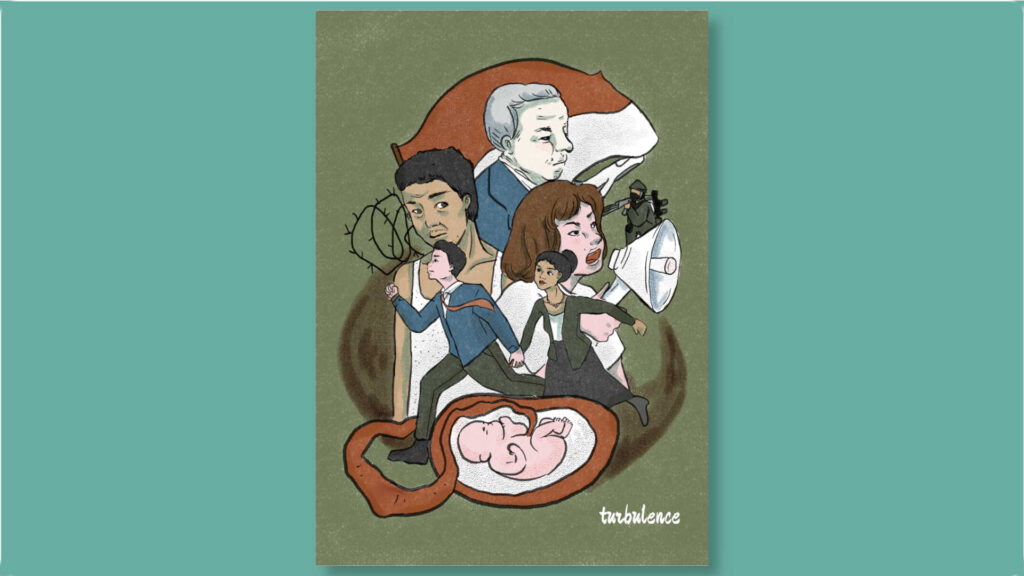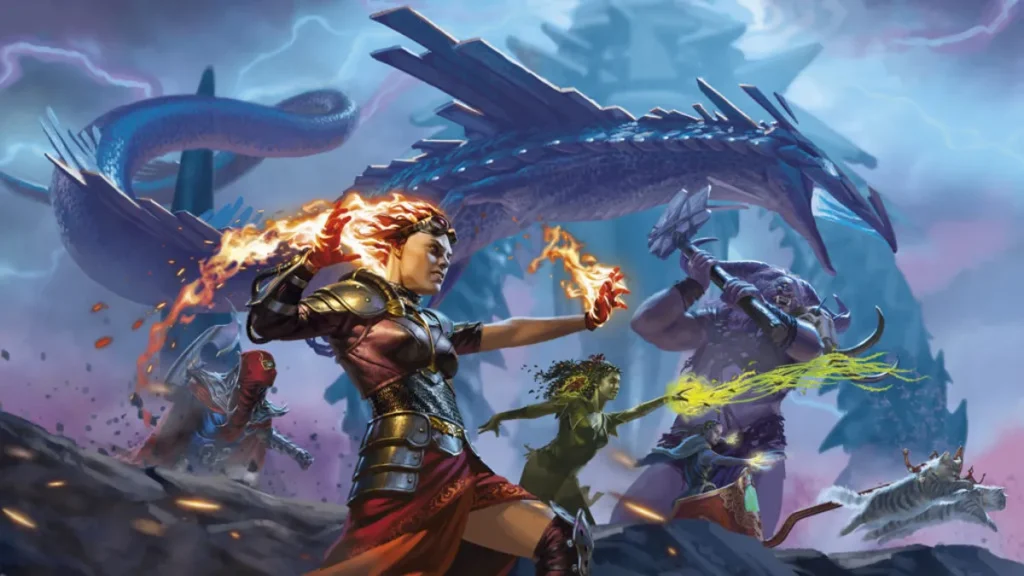Tabletop games offer insights into areas of history that are left unexplored by other forms of media. Armando Canales’ The Cost shines a light on the brutal practices of the asbestos industry, Splotter Spellen’s Horseless Carriage allows players to experience the absurdly unsafe world of early automobile transit, and Resist! depicts the doomed but noble war waged by the Maquis against Fascism in Spain. Turbulence is a project currently undergoing crowdfunding that describes a similarly underrepresented chapter of history. It tells the story of the Chinese diaspora living in Indonesia, as they navigate Dutch Colonialism, independence, and autocracy, and attempt to live their lives in a violent, ever-changing world.
The game’s designer, Nessa Theo, is a Chinese Indonesian herself, and created Turbulence with the intention of challenging stereotypes faced by her community. The game aims to provoke discussion about how the lives of Chinese Indonesians have been shaped by generations of upheaval, and trauma. The game also emphasizes that, despite all of this, Chinese Indonesians expressed their own agency, cooperated and endured the turbulent systems they inhabited.
Table of Contents
ToggleLife in Turbulent Times
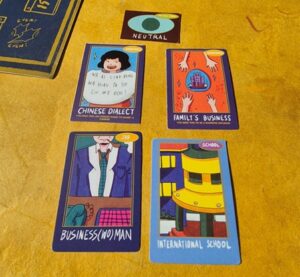
Players begin the game by creating a character through assembling a tableau of cards. Players choose their character’s career, their political affiliation, and how they were educated, but they do not choose what they inherit from their family, which is determined randomly. Just as in real life, we are unable to alter the circumstances of our birth.
The gameplay takes a lot of cues from Monopoly. Players traverse a board collecting money and drawing cards that will impact their fortunes, both financially and interpersonally. The game board resembles a calendar, with players literally travelling through history. When players return to the start space, rather than collecting $200, a historical event occurs that has massive game upending implications.
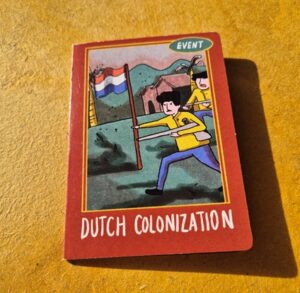
These events have differing impacts on players of different social classes. A player who is a business magnate with authoritarian political leanings may be able to sail through the autocratic Suharto regime without incident, but when the regime collapses in a bursting bubble of economic instability, their prospects suddenly become significantly bleaker. Similarly, players controlling activists will have to be either savvy or lucky to survive colonial rule.
These events are the core of what makes Turbulence compelling. There’s a very sudden rupture, as what at first seems like a familiar monopoly-esque experience suddenly escalates into a high stakes game of survival, which not every player will emerge from unscathed.
Survival is left up to chance. Players impacted by an event have to flip over a token that determines whether they live or die. Players can bribe officials, and travel abroad to increase their odds of making it through the titular turbulence adding more safe tokens to the pool, but absolute safety is never guaranteed.
Designing Uncertainty in Turbulence
Nessa Theo, Turbulence’s designer, is an artist and researcher. Turbulence is her first board game, as she sought to create something interactive and engaging, rather than simply visual.
Chance and uncertainty are major pillars of Turbulence’s design. In an interview with Card Gamer, Theo discussed the role of chance in the game.
She stated: “I wanted to let the players know what it’s like to live under uncertainty, and to take the actions that Chinese-Indonesian took throughout history that were portrayed as a reason to hate them.”
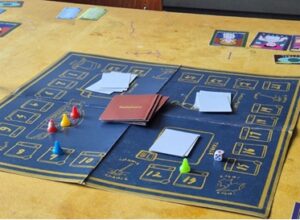
The Monopoly-inspired, financial focus of the gameplay is also a commentary on stereotypes that form the lived experience of Chinese Indonesians.
Theo outlined how, during Dutch Colonial rule, Chinese Indonesians were appointed as tax collectors, and this led to long lasting social stigmatisation. The rest of society often defines Chinese Indonesians through their relationship to money, and Theo hopes to use the game to confront these ideas.
“The game was made to talk to a non-Chinese audience. There is this popular framing of Chinese-Indonesians as solely victims, and focusing too much on violence and trauma within Chinese-Indonesian history. That is something I’d like to kinda stay away from. I think allowing the players to roleplay and take actions to survive, or at least increasing their chance of survival is a way in which I sought to show the agency of the community.”
To challenge these stereotypes, Theo modified the win condition of Turbulence. Initially, once all of the events in the game had concluded, the wealthiest player would win. Theo felt that this reflected the stereotypes her game sought to discuss, but that it did not challenge them, as such she later revised the rules. Now, every player who lives through the chaos of the game’s events is a victor.
Conclusion

Turbulence is currently being crowdfunded on its designer’s Ko-Fi. The artistic intent behind the game is clear. It takes a typical tabletop gameplay loop, of travelling across a board, accumulating cash, and uses it to confront deeply ingrained stereotypes by combining this archetypal gameplay with the uncertainty and chaos of sudden player elimination.
The game can be arbitrary and at times unfair; it leans heavily on luck, and the odds can be stacked against players from the start based on the circumstances of their character’s birth. All of this serves the game’s message. Of course, a game about prejudice isn’t going to play fair, the harshness of its rules reflects the difficulty of the lived reality of its subjects, and its unfair gameplay systems reflect the unfair systems that Chinese Indonesians have historically endured. True to its name, Turbulence is just as tumultuous and chaotic as the history that it depicts.
Check out our other spotlights on indie games, such as Empires Out of Time and DiaFight.

